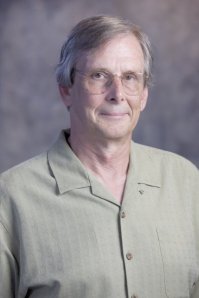This continues my series on professional networking.
I credit my skills and hard work for most of the success I’ve achieved professionally. But my professional network has helped tremendously, too.
In this post, I’m going to run through the jobs I’ve landed and explain how my network helped me get most (but not all) of the jobs in my career:
Because my mother read the newspaper …

Chuck Offenburger, right, gave me my first job in journalism back in 1971.
I was on a canoe trip in the summer of 1971, between my junior and senior years of high school, when my mother read a notice in the Evening Sentinel that Sports Editor Chuck Offenburger was looking for a sports writer. I didn’t know Chuck, and had no network connection to him. But Mom called the notice to my attention. I applied and I got the job (and Chuck and I remain friends).
But the network connection that mattered here was my mother. I’m not a fan of nepotism or family interference, which didn’t happen here. Mom didn’t even know Chuck. But she tipped me off to the first job of my journalism career. And Mimi has alerted two of our sons to opportunities that led to jobs for them. Listen to your mom. (more…)




